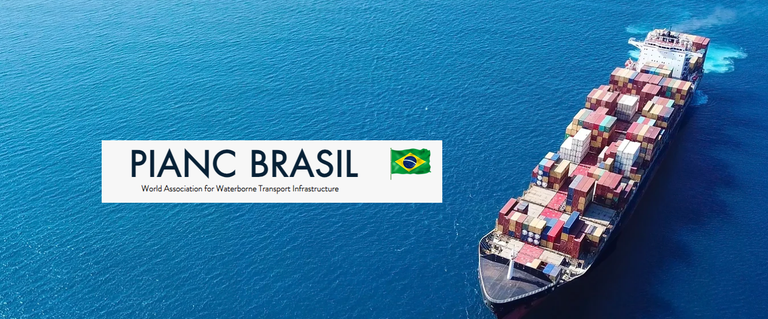The report included case studies conducted by ANTAQ in Brazilian terminals
Published on 16/01/2024 14h35
Find out more about PIANC at https://www.piancbrasil.com.br/
The National Waterway Transportation Agency (ANTAQ) took part in PIANC’s international Working Group – WG 216: “Best Practices in Planning and Management of Multimodal Logistics Platforms along Inland Waterways“, whose final report was published in December 2023 on the website of the World Waterway Transportation Infrastructure Association (PIANC).
PIANC is an international scientific, non-political and non-profit association created in 1885 with the aim of providing guidance and technical advice on sustainable waterway transportation infrastructure for ports, marinas and waterways in developed and developing countries. The Association is made up of members from governments, corporations and private companies and, in this sense, ANTAQ became a qualified member in 2007 and, as well as representing Brazil, has the right to vote at the Annual General Meeting – AGM and the possibility of participating in meetings of technical committees and working groups – WGs.
Within the WGs, reports are drawn up which are true guides to best practice at international level, which is why the Agency has invested efforts in bringing regional and national needs to the discussions at PIANC.
The published report examines a total of nine river ports and multimodal logistics platforms in Europe and Brazil, both publicly and privately owned, focusing on the strategies employed by port managers and stakeholders. Multimodal platforms are mandatory tools for efficient logistics and therefore efficient waterways, serving the economic development of a region or a country. In addition to Brazil, representatives from Belgium, Romania and France cooperated in the development of the material.
ANTAQ was responsible for providing the information needed for the study and collaborating in the textual production and carrying out of the research. For the Brazilian case, two different facilities were consulted, in Pará and Rio Grande do Sul. The entire activity took place over 18 months, with meetings and interviews to discuss the results within the Working Group – WG-216, created within the PIANC Inland Navigation Commission – InCom. The aim of having a PIANC WG on multimodal platforms is to help decision-makers (port managers, waterway managers, etc.) make the right choice, identify relevant investments and locations for platforms.
In order to convert a river into an efficient means of transportation, i.e. a waterway, the infrastructure must be integrated with various means of transport, which is why a multimodal platform is so important. Considering that waterways and inland ports offer safer, more qualified and more environmentally friendly movement of passengers, goods, containers and bulk cargo, the combination of waterways with road, rail and air transport, or pipelines, creates logistics that allows for improved connectivity, reliability and sustainability. In this way, the report seeks to present a unique and strategic approach with valuable insights for projects to create or expand multimodal logistics platforms on inland waterways.
More information about the report can be found here and the study can be downloaded from the Association’s official website, with associate members having free access to the full text.
Source: ANTAQ

